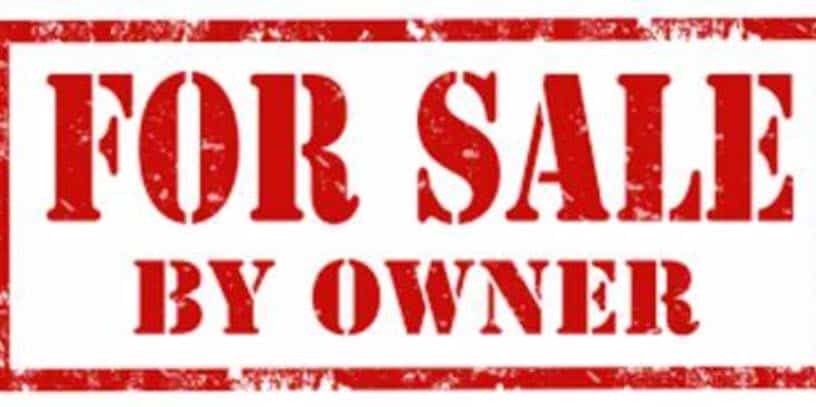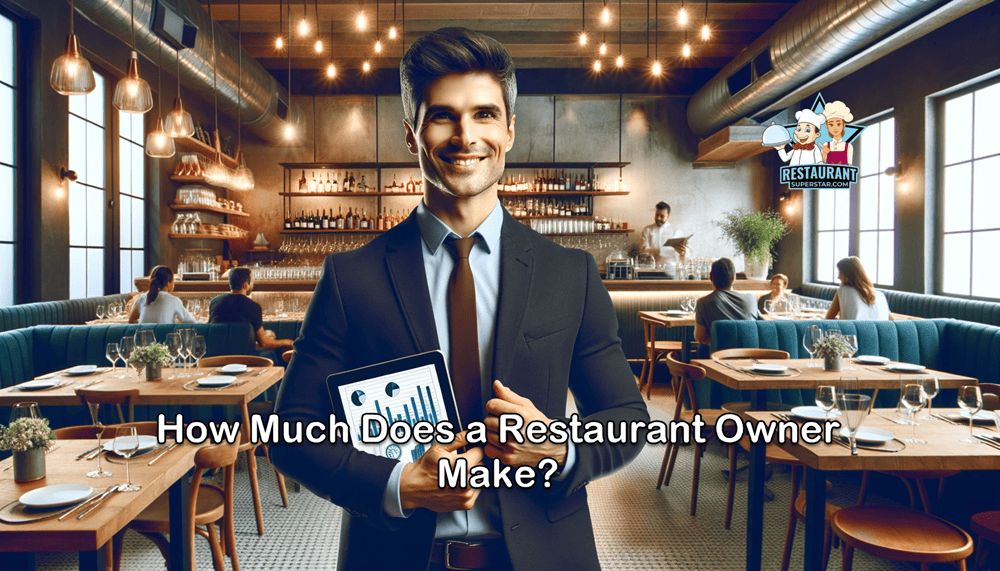How to Sell a Restaurant By Owner (10+ Powerful Tips)

Hey there, thanks for stopping by our website. If you’re looking for information on How to Sell a Restaurant By Owner, you are in the perfect place. Restaurant Superstar is designed to help you to be more successful in your Restaurant business. So after reading this article make sure to peruse the site for more helpful information.
How to Sell a Restaurant By Owner? First organize your documents, have your restaurant in tip-top shape, determine the restaurant value. You’ll need marketing expertise and business skills. If all else fails you might want to hire a good restaurant broker.
Every Restaurant Owner Considers Selling Occasionally. but Even If Your Restaurant Is a Big Seller with Purchasers Waiting Outside the Doorway, Selling a Restaurant Isn’t As Straightforward As Selling a House or a Car.
How to Sell a Restaurant By Owner
Should I Sell My Restaurant?
If you decide to sell your restaurant, it’s not a bad idea if you’re just dissatisfied or bored and want to try something new, even after you’ve made a massive success in your restaurant business. It is time to sell your restaurant; if you, in the course of trying out other businesses, open up a larger restaurant, then you could use the money generated from the sale of your former restaurant business to upscale the new one, which indicates that you are changing course or refocusing on your life, which is a good thing.
You’ll likely have a lot of work ahead of you if you’ve decided to sell or are at least actively contemplating it. Suppose you can start planning a year. This will allow you to get your finances in order, make necessary changes, and plan for consistent or increasing sales to make your restaurant more alluring to customers.
In Order to Sell Your Restaurant, What Should You Do?
When you want to sell your restaurant, the first step is to start assembling the necessary papers. State-by-state variations may apply, but generally speaking, you need to gather the following paperwork:
- Your property list
- A duplicate of your lease
- A copy of any necessary licenses
- Copies of the results of health inspections
- Architectural plans copies
- Financial statements in copies
- Copies of additional essential financial papers
Although you might not want or need to give copies of all of these things to potential purchasers, you may later require them as a part of the transaction.
Additionally, since you’ve worked hard within your business for so long, you likely only have an insider’s viewpoint, so compiling and updating these papers is essential. The more current and accessible this documentation is, the easier it will be for you to see precisely what you sell from the customer’s perspective. It also aids in identifying any holes that require filling.
Understand Your Commercial Lease
To become familiar with your commercial lease agreement, the best thing is to discuss your plans to sell with your landlord and ask whether the lease can be extended. A pre-existing lease can offer security to a potential buyer, particularly one locked in at a reasonable cost. Your landlord will appreciate the security it offers as well. This is also the time to see a lawyer who can explain all the clauses and agreements to you, so you are confident in your legal rights when selling.
You must be aware of the agreement’s conditions before starting the selling procedure. Your landlord may be able to halt a transaction if you are making an incorrect assumption about the specifics.
Prepare Your Financials
A crucial component of selling any firm is the financials. So it needs to be carefully planned. To prepare, you need to plan to provide a year’s worth of financial records to potential buyers. Make sure that these records are as precise and organized as possible.
We are in business, at least in part, to make money, after all! Your equipment and other asset inventory, cash flow statements, cash transactions, tax paperwork, and bank statements are all examples of financial information. Another reason to start putting this component together far in advance is that well-presented finances can significantly impact a sale.
You must know of any outstanding debts, unpaid taxes, or looming maintenance expenses to sell a property. Suppose the purchasers discover a dotted line shocker that they don’t like after signing on. In that case, you could end up in court for failing to own up to liability.
Estimate the Worth of the Restaurant
Knowing the value of your restaurant is the first step toward selling it. Any potential purchasers will demand a thorough breakdown of the company’s financials, whether they are favorable or unfavorable. However, gathering all of this data is a stressful, drawn-out procedure.
So it’s best to take your time and organize things. Additionally, you should figure out how to improve your sales, profitability, and product offerings during that time. Any potential buyer who makes a fair offer will need evidence of consistent cash flow and high-caliber sales.
Additionally, it’s crucial to persuade potential customers of your company’s worth and future. Therefore, it is in your best interest to cut costs and increase revenues to establish a consistent cash flow before putting the company up for sale. Restaurants and other food-related companies typically take six months to two years to sell.
You Need to Prepare to Sell Your Restaurant
Make sure you read the regulations you must abide by and know your responsibilities. Many things could go wrong with inadequate planning and preparation. For instance, a minor contract violation could have disastrous effects and thwart future ambitions to sell the restaurant. Additionally, you may talk to your lawyer about what is expected of you throughout the process. Having a capable legal team by your side to guide you is the best approach to being ready.
Planning and preparation are essential when selling your restaurant business. You cannot enter the sales room while wearing blinders and unprepared. To bring the business to where it is now, you have probably put a lot of time, money, resources, work, and effort into it. You wouldn’t want to put all your work in vain since you didn’t give yourself enough time to prepare for the sale. You may come to regret this costly error in the future.
Marketing to Sell Your Restaurant
You are now prepared to start marketing your restaurant to possible purchasers after gathering and finishing the necessary documentation for your sale.
Your establishment has at least one distinct advantage that can appeal to potential customers. You should recognize your restaurant’s appealing traits and convey them to potential restaurant buyers if you want to fetch the most excellent price for it.
What Amenities Does Your Locality Provide?
Regarding locality, having a “good” location is essential, as we’ve all heard. Still, the location may refer to more than just your address. You have the chance to highlight the positive aspects of your place, even if they aren’t immediately apparent to visitors. What finer details about your place do you know that a potential buyer wouldn’t?
Is there a public transportation stop near your restaurant?
Is there a bike route near your restaurant?
Does there exist new construction in your neighborhood?
Is your company located in a region with a high residential density but limited commercial space?
How to Market Your Restaurant for Sale
- Recognize the Value of Your Restaurant
- Give yourself time to gather the financial information if you’ve just chosen to sell your restaurant.
- Increase your revenues and service offerings. Buyers will look for reputable sales and a consistent cash flow. Before listing your business,
- It is in your best interest to increase sales and decrease expenses to boost cash flow because it is crucial to persuade buyers of the quality and potential of the company.
What are your restaurant’s unique features?
Keeping the quality of its cuisine high and ensuring that each meal meets that level. Developing a favorable brand image and encouraging client loyalty may be accomplished in part via the provision of delectable food.
One will go out of business sooner if you don’t appropriately price your meals to cover your costs for food, overhead, taxes, and desired earnings. The likelihood that a restaurant can consistently provide exceptional cuisine and service is increased when the business side of the establishment is well managed.
How Do I Appraise My Restaurant?
The best way is for a buyer and seller to collaborate to thoroughly evaluate a restaurant business’s physical assets, reputation, and profitability. You can start setting a price once you have a general notion of your marketing plan.
Choosing the proper pricing for your restaurant might be challenging; set it too high, and you might have to wait years to sell and set it too low. You might give customers the incorrect impression. Not to mention that you will lose out on the sale’s proceeds!
Assessing everything of worth, from the simplest to the most complex, is necessary to determine the value of your restaurant. Physical assets are simple to value; you may assign a fair market value to your machinery, building, and land (if you own them), among other things. The next topic is money. To verify your claims, prospective buyers need to view your bank records and tax returns, and they’ll also want to know if you’re making money.
Can you capitalize on scarcity?
Yes, it is possible. Both blessings and curses can result from a shortage. A clever marketing tactic might involve creating the appearance of scarcity. Sometimes, your advantage in a sale won’t simply come from what you already have but also from what your rivals find challenging to acquire. Suppose there aren’t many commercial premises available and many restaurants nearby. In that case, it might be far simpler for someone to build upon what you’ve already accomplished than to start from scratch.
Do any restricted liquor licenses exist in your region? (In most states, the transfer of your liquor license is permitted as part of the sale. A change in zoning regulations or other restrictions that would make it difficult or impossible for new businesses to get off the ground since your restaurant started.
What Does Your Location Have to Offer?
Regarding locality, having a “good” location is essential, as we’ve all heard. Still, the location may refer to more than just your address. You have the chance to highlight the positive aspects of your place, even if they aren’t immediately apparent to visitors. What finer details about your place do you know that a potential buyer wouldn’t?
You must know how to respond to these queries. You want to be able to answer these questions, Is there a public transportation stop near your restaurant? Is there a bike route near your restaurant? Does there exist new construction in your neighborhood?
Is your company located in a region with a high residential density but limited commercial space?
Stage Your Property and Make It Appealing
Giving away something to social media users who share your content will increase the number of individuals who take advantage of the offer and promote your restaurant on social media. Promote the newest menu items. For the restaurant owner, adding a new menu item is always exciting.
Should I Update My Restaurant and Equipment First?
Upgrading your restaurant’s equipment could be rather expensive. But then, a positive first impression is significant. What would a prospective buyer notice if they came up to your restaurant business right now? Is the exterior appealing and clutter-free? Does each inside light function properly? A messy dining room, kitchen, or exterior could give the buyer the impression that profitability is a fundamental problem.
Ensure all the equipment is current and in excellent operating condition before attempting to sell your business. As long as you put aside a percentage of your budget for upgrading and replacing your equipment, you can be confident that money will be available from selling your business.
What first impressions does your restaurant give?
A timely and friendly greeting. No matter how busy or well-liked you are, customers have decided to do business with you rather than one of your numerous rivals. They anticipate that you will display signs of gratitude.
When a new customer comes to your restaurant, they could have a wide range of expectations, including everything from the level of service to how soft the toilet paper is. The food served at your establishment is simply one of many factors that could create the excellent restaurant first impressions required to entice repeat business, depending on how people learned about it, where they heard about it, and what matters to them personally.
Choose the Right Time to Sell
The best time to sell is three years in advance. To determine an opinion of the business value and what a fair market price would be, it is very beneficial to have complete financials for the three years preceding the year the owner intends to sell the business.
Many business owners frequently base their restaurant’s value on what they have heard another business sold for, what a friend, coworker, or financial advisor says it is worth. A standard multiplier or method of evaluating a restaurant does not exist because they are all unique.
The ideal strategy is to meet with a restaurant broker who is active in the market and has detailed profit and loss accounts for a total of three years on hand. This will help with determining a reasonable and attractive asking price.
Who Is a Potential Restaurant Buyer?
You were visiting regional gatherings or trade events where you could speak with brokers or prospective customers. You’ll probably still want to post information about your business sale online to point to interested parties quickly. Consider the importance to you of the timeline and the cost when selecting your choice.
Getting The Right Offers
The best method to draw in people and highlight all your restaurant offers is through promotions. The key is to develop exceptional offers that draw in new customers, entice returning one-time visitors, turn them into regulars, and increase revenue. Restaurant promotions can include highlighting signature meals to offering happy hour specials. They can come in the form of coupons, QR codes, discounts sent to your email or receipt, or they might take the shape of discounts.
Hiring a Professional Broker
Although this article is about selling a restaurant by owner you might want to consider hiring a broker …
A restaurant broker can accurately price your business for sale using industry benchmarks, current market conditions, and historical performance. A vendor who prices a firm too low is leaving money on the table, and the price has to be set too low to keep it on the market for a long time. A restaurant broker is well-versed in the restaurant industry, has received the appropriate training, and knows all the legal requirements for liquor licenses, sales taxes, health and safety, and building laws.
Advantages of a Professional Broker
- A Broker Could Save You Time
- A broker can also advise you to avoid specific lenders whose mortgage contracts have onerous payment restrictions.
- There is a chance that a representative will have additional authority.
- Due to the volume of business they generate—which may be less than you can achieve on your own—brokers may also be able to negotiate exceptional prices with lenders.
- When it comes to qualifying customers, some lenders exclusively work with mortgage brokers. You may not be able to get a retail mortgage if your lender does not allow you to contact them directly by phone.
Restaurant For Sale By Owner Common Mistakes
- Selecting a broker based only on price
- Overcharging the market
- Losing focus on the task at hand
- Refusing to accept a bargain
- launching a business without reliable financial data
FAQS
How Can I Sell My Restaurant Quickly?
Owners of restaurants should treat their establishments like their homes to increase the likelihood that they will sell quickly. You will need to outbid the other sellers if you want to sell your business swiftly. Create your best effort to make a competitive offer after assuming that competing restaurant owners will try their hardest to persuade your buyer. Your restaurant and proposal will be compared to other offers by your buyer. So, in addition to setting an attractive asking price, emphasize all of your company’s advantages.
What Is the Formula for Selling a Restaurant?
The formula is to multiply the net profit by a factor of 3 to 5 to arrive at the sale price. As a result, the asking price for a restaurant with a $100,000 annual profit should be between $300,000 and $500,000.
Is It Hard to Sell a Restaurant?
Trying to sell a restaurant may be a time-consuming and challenging process. To successfully sell a business, an owner must be capable of controlling their emotions and focusing on the transaction objectively.
The operator should begin arranging their exit strategy three years in advance. To determine an opinion of the business value and what a fair market price would be, it is very beneficial to have complete financials for the three years preceding the year the owner intends to sell the business.
How Much Should I Sell My Restaurant for?
Restaurant investors and owners want to recoup between 25 and 40 percent of their annual operating profits when they sell their establishments. For instance, if the company’s annual sales are $1 million, they would choose a sales price, which would be between $250,000 and $400,000.
Recent industry statistics show that the median selling price for restaurants is $150,000. However, depending on the style and location of the restaurant, prices vary greatly, and more enormous initial expenditures will result in higher charges.
Independent of several factors, overall launch expenses as of 2020 range from $250,000 to $500,000). However, it is usually advisable to estimate a larger price based on geography, real estate market fluctuations and current assets at the time of purchase. You might find something cheaper in your neighborhood.
Conclusion.
Selling your restaurant will require some negotiation, as it does with the sale of any business. During discussions, a knowledgeable business broker can significantly assist you, but you must also contribute.
Your role in this situation is to give the buyer all the information they need when they ask for it, put your ego and personal feelings aside, and maintain a professional and cordial atmosphere throughout the transaction.
Everyone knows you’ve spent years giving this place your blood, sweat, and tears. Still, the potential buyer is only buying a piece of property and any brand equity it may or may not have. They will approach the purchase objectively, and you must do the same.
Jeff Smith is a Restaurant Consultant with over 20 years of hospitality experience ranging from server to owner and general manager. He focuses on Restaurant POS technology as well as restaurant marketing. Make sure to check out our world famous restaurant resources page for a comprehensive offering of hand picked resources and tools to help your business. You can also check out some of our other restaurant business articles.


